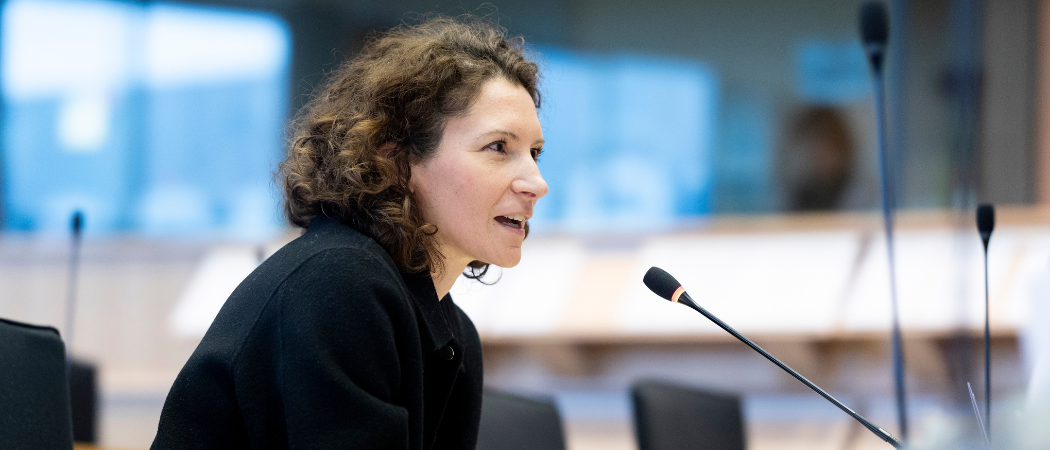An informal task force set up in the European Parliament will advise on making Widening a stronger presence in the next research Framework Programme

MEP Eszter Lakos. Photo credits: Alain Rolland / European Union
Measures that will make Widening a strong presence in FP10, the next EU research and innovation Framework Programme, are being drawn up by an informal Parliamentary task force.
The group, which began work in January, will advocate for mainstreaming Widening in FP10 by integrating its principles across all programme areas and funding instruments. It also wants to see inclusivity and capacity-building prioritised, and participation from underrepresented countries promoted in call designs, evaluations and partnerships.
The concept of Widening was introduced in the eighth Framework Programme, Horizon 2020, to address disparities in research and innovation performance across Europe. It was originally meant to be a temporary label that empowered countries with lower participation rates in the programme, not a permanent status.
However, Widening has continued under Horizon Europe, and currently covers most of central and eastern Europe, plus Greece, Cyprus, Malta and Portugal.
The task force is led by Hungarian MEP Eszter Lakos, a member of the Parliament’s Committee on Industry, Research, and Energy (ITRE), and has the backing of ITRE’s chair, the Polish MEP Borys Budka. It includes as participants a group of umbrella organisations focused on Widening issues and research and innovation stakeholders from Widening countries.
The aim is to have recommendations ready when the European Commission presents its proposal for FP10, currently expected in July.
“We need a strong basis for negotiations,” Lakos told Science|Business, adding that effective solutions can only be achieved by drawing on the expertise of those working directly in the field. “A collaborative approach, where policy is shaped alongside practitioners, ensures that decisions are both practical and impactful.”
According to Pirita Lindholm, director of the European Regions Research and Innovation Network (ERRIN), the task force fills an important gap in the policymaking process.
“Widening as a topic lacks platforms for discussion and exchange,” she told Science|Business. “It is also a topic that has not, in our view, been well enough assessed together with all relevant actors and stakeholders from the Widening countries and regions.”
On the agenda
In addition to ERRIN, participants at the first meeting of the task force in January included the Slovak and Lithuanian research offices in Brussels, Poland’s Wielkopolska Region, Portuguese research and technology organisation INESC Science and Technology, the European University Association and the Guild of European Research-Intensive Universities.
One of the main topics for discussion was how barriers to research participation can be addressed, while promoting inclusivity.
According to Ricardo Miguéis, who heads INESC Science and Technology’s Brussels office, the EU needs to have a more structural and impact-driven approach to Widening. “The evidence suggests that simply increasing participation from Widening countries is not enough. We need mechanisms that embed excellence and competitiveness in all European regions,” he told Science|Business.
He added that many excellent researchers in Widening countries struggle to compete on equal terms due to limited access to technology, networks and funding. This highlights the need to provide better dissemination, technology transfer and innovation linkages.
The answer, he said, is long-term capacity-building, better alignment between the Framework Programme, the European Research Area and national R&D policies, and stronger research and innovation ecosystems that ensure all institutions can compete equally, regardless of geography.
Lindholm meanwhile wants to see more qualitative assessment, to effectively evaluate how current Widening instruments have strengthened institutional capacities for a stronger participation in the EU Framework Programmes.
Such positive evaluations also need to be rewarded, according to another participant in the meeting. “How long should a country remain in the Widening ghetto before we acknowledge progress and adjust the approach?” asked Tadas Tumėnas, head of LINO, the Lithuanian research liaison office in Brussels, in a social media post.
“We must establish clear criteria for assessing progress,” he went on. “Should a country graduate from Widening after reaching a certain participation rate? Should we have a time frame or an exit strategy for countries that have significantly improved? These are questions we need to tackle.”
At least two more task force meetings are scheduled before July, with the next due in March. Discussions will focus on topics such as the barriers Widening countries face in accessing funding from the European Research Council and European Innovation Council, the future of the European Institute of Innovation and Technology, and the role of joint undertakings and European partnerships.





 A unique international forum for public research organisations and companies to connect their external engagement with strategic interests around their R&D system.
A unique international forum for public research organisations and companies to connect their external engagement with strategic interests around their R&D system.